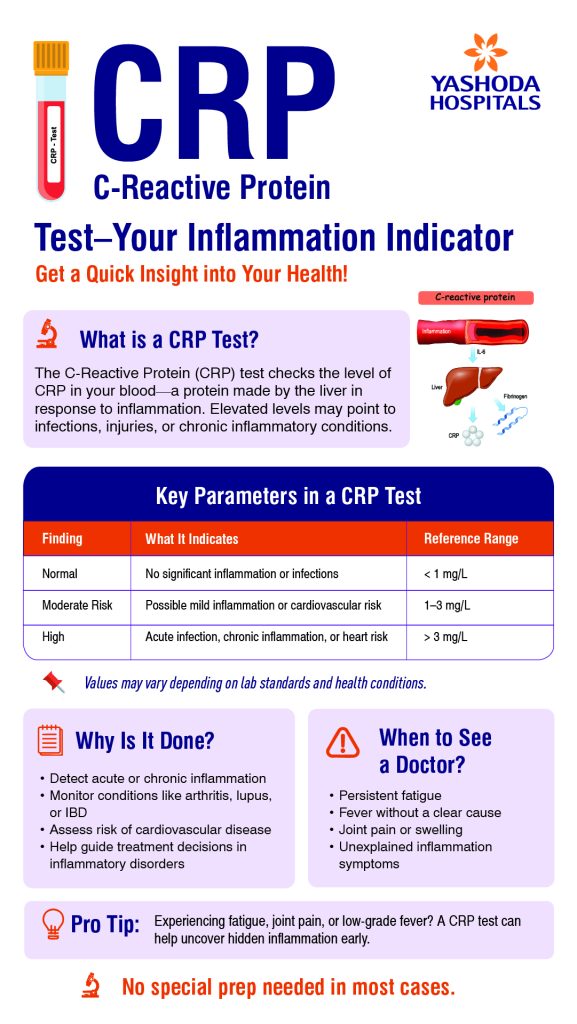What is a CRP Test?
The CRP test, or C-reactive protein test, measures the levels of a protein produced by the liver in response to inflammation in the body. Elevated CRP levels can indicate various conditions, such as autoimmune disorders, chronic diseases, infections, and inflammatory conditions like arthritis. Additionally, high CRP levels can signify an increased risk of cardiovascular problems, including heart attacks, as inflammation can contribute to artery damage. The CRP test is a valuable tool for assessing inflammation levels and potential health risks, helping healthcare providers make informed decisions about patient care and treatment.
What is the CRP Test used for?
The CRP (C-Reactive Protein) test is used to measure the level of C-Reactive Protein produced by your liver. It is further used to:
- Check for inflammation due to an infection.
- Determine your risk of heart disease.
- Evaluate your risk of a second heart attack.
- Help diagnose chronic inflammatory diseases, such as rheumatoid arthritis or lupus.
Understanding the test results of CRP (C-Reactive Protein) Test
The CRP (C-Reactive Protein) test measures CRP levels in milligrams per liter (mg/L). Interpretation of the results typically involves assessing the level of CRP in relation to various health conditions, primarily cardiovascular disease risk:
| Risk Category | CRP Level (mg/L) |
| Low | Less than 1.0 |
| Moderate | 1.0 to 3.0 |
| High | More than 3.0 |
Elevated CRP levels may indicate a heightened risk of various health issues, including but not limited to infection, cardiovascular disease, cancer, tuberculosis, inflammatory bowel disease, rheumatoid arthritis, lupus, or other inflammatory conditions.





 Appointment
Appointment WhatsApp
WhatsApp Call
Call More
More